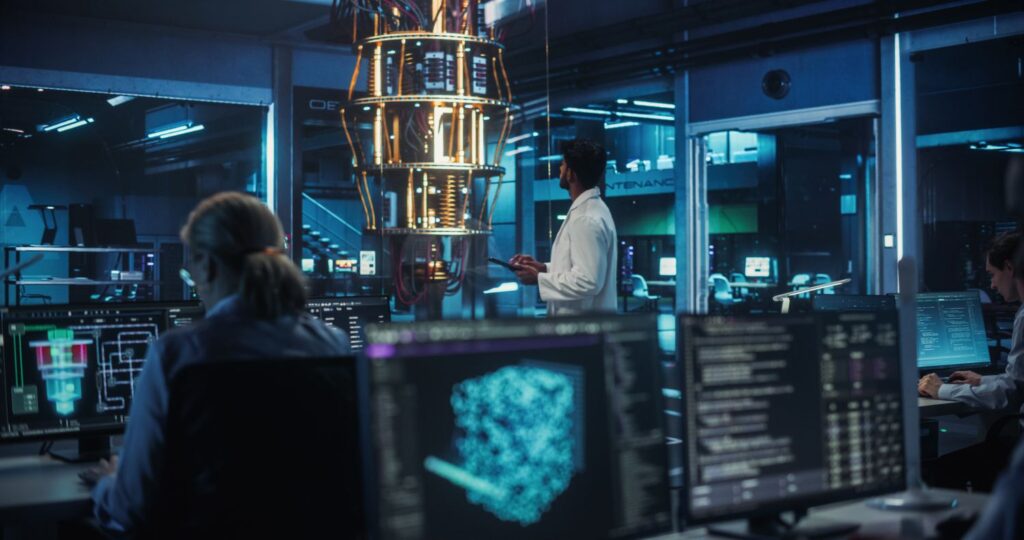Key Takeaways
- AI is generative software that “learns” patterns from data to make predictions or decisions.
- Quantum computing is a new kind of hardware that uses quantum bits (qubits) to process many possibilities simultaneously, potentially solving problems too complex for today’s computers.
- AI and quantum may converge in the future: quantum could supercharge certain AI tasks, while AI is already being used to stabilize quantum systems.
Most people think AI and quantum computing are essentially the same thing, which is futuristic technology that’s hyped in headlines and driving significant stock market gains. It’s certainly doing the last part, but you’d be wrong to confuse these technologies otherwise.
AI is a software capability that learns from data to automate or assist decisions, while quantum computing is hardware built on principles of quantum physics, designed to crunch calculations that would take traditional computers millennia to solve.
What AI Actually Is
AI refers to algorithms, including machine learning, neural networks, and large language models (LLMs), that find patterns in big data to make predictions, classify information, or make recommendations based on those patterns.
This includes popular applications like ChatGPT, product recommendations, fraud alerts, and self-driving features already widely available today. These systems run on traditional computers, using common hardware like CPUs and GPUs.
What Quantum Computing Actually Is
Instead of the 0s and 1s used in binary code, quantum computing is based on qubits (short for “quantum bits”), which can represent many possible states at once. This theoretically allows quantum machines to process vast numbers of potential solutions in parallel.
If this were to occur, these computers would be orders of magnitude more powerful for specific tasks than even the most advanced supercomputers, such as simulating complex molecules or searching through massive search spaces. Meanwhile, as powerful quantum computers threaten to break current encryption, computer scientists are already working on post-quantum cryptography to ensure data security in the long term.
Quantum devices are still limited and prone to errors today. But the long-term potential is enormous. Indeed, quantum computers are making progress, with qubit processors now able to vastly outperform classical systems—but still on very narrow, benchmark tasks. The promise is that quantum machines would eventually replace traditional computers, ushering in a new post-digital age.
AI vs. Quantum Computing
AI
-
Novel software architecture
-
Already mainstream
-
Focus on thinking, learning, prediction
-
Runs on classic hardware (binary code)
Quantum Computing
-
Novel hardware architecture
-
Still experimental
-
Focus on raw data analysis and simulation
-
Runs on qubits (multistate code)
Where the Two Meet
The intersection of quantum and AI is likely to take two parallel paths:
- The first is the eventual use of quantum hardware to speed up or augment certain AI tasks, allowing models to consider far more options at once, search solution spaces faster, and tune themselves more quickly.
- The second would see current AI methods deployed to help build and control quantum systems—keeping these delicate machines stable, automatically adjusting settings, spotting glitches early, and generally helping the hardware function for longer stretches.
The quantum acceleration of AI tasks could lead to possible breakthroughs in medicine and biotech, materials science, weather modeling, finance, and logistics. These possibilities may be speculative, but early proofs of concept have been promising.
AI is already everywhere. You can chat with it in plain language, businesses use it automate some everyday tasks, and consumers allow it to personalize their experiences for many things online. Quantum computing is less visible—but could be at least as transformative. It could one day power breakthroughs in medicine, materials, green energy, and ultra-secure encryption.
